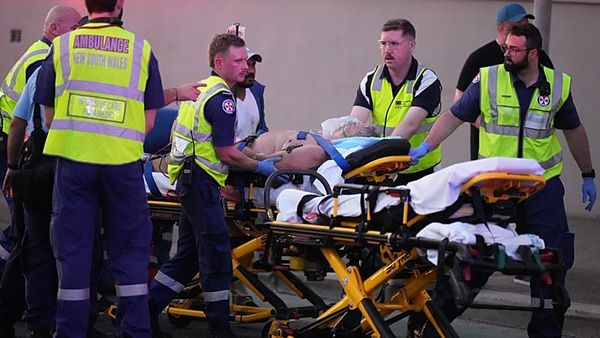Talks to avert next week’s Tube strike have ended without a breakthrough – raising fears of six days of chaos on the London Underground.
Negotiators from Transport for London and the RMT union got back round the table on Wednesday, following talks on Tuesday.
But the discussions “went nowhere”, according to one informed source, with TfL again refusing to give in to the RMT’s “unaffordable” demand for a 32-hour week.
TfL has now written to all 16,500 Tube staff explaining that it would rather spend its pay budget on pay increases rather than shorter working hours - while making clear that the RMT’s demand would cost “tens of millions of pounds”.
TfL says it remains open to further talks but none are planned at present.
Unless a breakthrough is achieved by Friday night, it may be impossible to prevent disruption next week – even if the strike is called off over the weekend.
It came as Chiltern Railways warned that its services in and out of Marylebone via Amersham would be affected - and would not stop at intermediate stations in outer London during the strikes.
About 10,000 RMT members are due to start a rolling walkout from early Sunday morning, with different workers taking action on different days.
This will mean little or no service from about 6pm on Sunday until mid-morning on Friday, with a near total shutdown of the Underground expected between Monday and Thursday.
The dispute with the RMT has taken several twists, with TfL urging the union to allow its members to vote on whether to accept a proposed 3.4 per cent pay rise.
This was offered about a fortnight after RMT members began voting on whether to strike – meaning many members chose to strike without knowing that a pay rise was available.
Only 57 per cent of RMT members on the Underground – just over 6,000 staff – voted to strike, while almost 4,200 members declined to take part in the ballot.
The RMT wants to secure a reduction in the 35-hour working week on the Tube.
But Nick Dent, TfL’s director of London Underground customer operations, in an email to all staff on Wednesday, made clear: “We continue to believe our pay budget is best spent increasing colleagues’ pay.
“This is what colleagues want, preferred over other costly items in the TUs’ pay claims such as a reduction in contractual hours.”
He said TfL had already begun to “address issues of fatigue and extreme shifts” raised by the RMT.
But he added: “A reduction in contractual hours is unaffordable and impractical. Throughout talks we have been clear even a small reduction in contractual hours would cost the organisation tens of millions of pounds.
“We also know people want to come and work for our organisation. That’s because our overall package – including pay, terms and conditions and benefits which include rest days, annual leave, contractual hours and working patterns – is better than similar organisations.
“We’re serious about addressing fatigue. We take fatigue management extremely seriously and have put in place a range of measures to reduce it.
“Today with the RMT we discussed other ways this can be achieved. However, RMT have maintained they will only accept measures that include a reduction in contractual hours, including for those that do not work shifts.
“This cannot be delivered – the costs are huge, unsustainable and will not effectively address the issue of fatigue.”
TfL has already agreed to bring in a system of enabling Tube drivers to work their hours over four days rather than five – with a trial due to launch shortly on the Bakerloo line.
But bizarrely the RMT does not want its driver members to be able to volunteer for a four-day week, even though it would cut the number of hours they spend on frontline operational duties to 34 hours a week.
The RMT wants a shorter week to tackle problems with “fatigue and extreme shift rotation”.
Station staff typically work 37.5 hours a week, meaning they “bank” 2.5 hours a week in overtime that is reclaimed as additional leave.
According to sources, it may be possible for TfL to modify shift patterns to limit the working week to 35 hours – but the irony of this would be the axing of working patterns that were supported by the RMT in the first place.
TfL’s pay offer reflects the amount offered more widely across the rail industry. However it has yet to be accepted by any of the four Tube unions.
Aslef, Unite and the TSSA are waiting to see whether TfL makes an improved offer in the hope of encouraging the RMT to back down.
In January last year, London mayor Sir Sadiq Khan took £30m from City Hall reserves to offer the RMT an improved pay deal to avert a strike.
The decision to hold the latest strike threatens to disrupt the travel plans of the three million people who travel by Tube – and deliver a £230m economic blow to the capital’s economy, according to the Centre for Economics and Business Research.

Claire Mann, TfL’s chief operating officer, urged the RMT to call off the strike – and to allow members to vote on whether to accept the pay offer.
She said: “We want them to continue to engage with us and put our fair, affordable pay offer to their members – which reflects a figure that is line with offers accepted by RMT across the rail industry.”
The RMT declined to comment on Wednesday. It is understood to be focusing on reaching a negotiated settlement and appears to be keen not to spark a war of words in public with TfL.
Chiltern Railways said that, if the strike goes ahead as planned, on Monday and Wednesday its trains that normally run on the Metropolitan line via Amersham would run non-stop between Great Missenden and Marylebone, meaning that passengers will not be able to board or alight at Harrow-on-the-Hill.
On Tuesday and Thursday there will be no trains south of Great Missenden.
Michael Roberts, chief executive of London TravelWatch, the passenger watchdog, said: "Strikes on public transport are a huge inconvenience for passengers.
“We urge all sides to work together and head off the threat of next week’s industrial action, but it looks like people should expect widespread disruption.
"Passengers are advised to check online for the latest information about affected services and be prepared to make alternative arrangements."
Tube strike set to deliver £230m blow to London economy was backed by just 57% of RMT members
Tube strike latest: TfL warns passengers of SIX days of misery if RMT walkout goes ahead next week
Londoners have no tears left to shed for Tube workers
Everything you need to know about Eddie Dempsey, new RMT boss and 'proud south Londoner'







